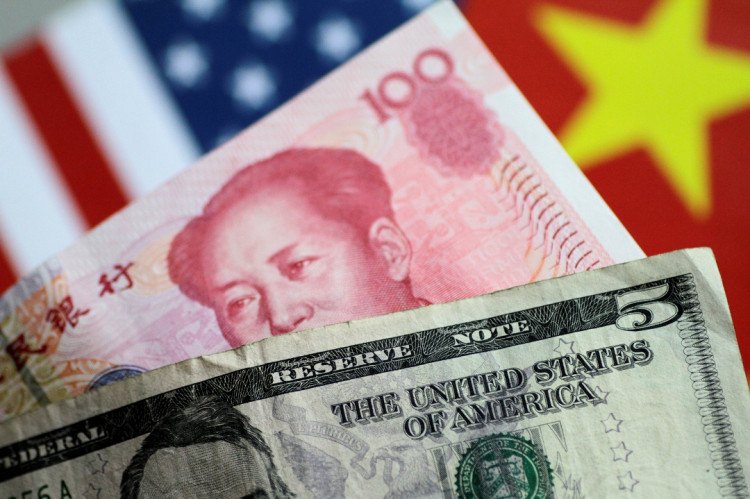The United States' labeling of China as a currency manipulator is unlikely to result in any international action given that the claim does not have the support of either the International Monetary Fund or the G7.
According to the reported citing a former G7 official, the organizations cannot find enough evidence to substantiate the Trump administration's claims against China.
Last week, the US Treasury Department officially designated China as a currency manipulator. The last time that the department made such an accusation was back in 1994.
The accusation has done little to improve the already sour relations between two of the world's largest economies and will likely even result in further trade actions.
US President Donald Trump reiterated the government's stance via a post on Twitter that outright accused China of manipulating its currency. The tweet was posted right after the Chinese Yuan fell below the 7-to-1 ratio to the US dollar. The drop in the Chinese currency's value came just days after Trump threatened to impose a 10 percent tariff on an additional $300 billion worth of Chinese goods.
Based on the agreement signed by the Group of Seven (G7) in 2013, countries that will take currency actions should consult with member countries first.
The US' decision to label China as a currency manipulator and its move to seek international intervention was apparently done without any such consultation.
According to reports citing sources close to the matter, G7 member countries were apparently caught by surprise at the United States' decision. Germany's finance minister even openly warned that such actions by the US will do nothing but damage already fragile relations, which would further hinder growth.
Late last week, the IMF's China department head, James Daniel, mentioned that the group's assessment of the situation saw nothing out of the ordinary in how China's currency has fluctuated. The official stood by the organizations findings that the drop in the value of the Yuan was in line with economic fundamentals.
Apart from Daniel's statement, the IMF, in general, has not yet officially commented on the US' actions. The US is, of course, the group's largest shareholder and the country has a strong influence on the decision on who will be voted as the IMF's new leader following Christine Lagarde's exit.
While the IMF and G7 officials have continued to stay mum on the issue, some economists have spoken out and explained their takes on the situation. Former IMF chief economist Maurice Obstfeld and former US Treasury Secretary Larry Summers have both mentioned that they have found no evidence to suggest that China had knowingly manipulated its currency for competitive gain.





